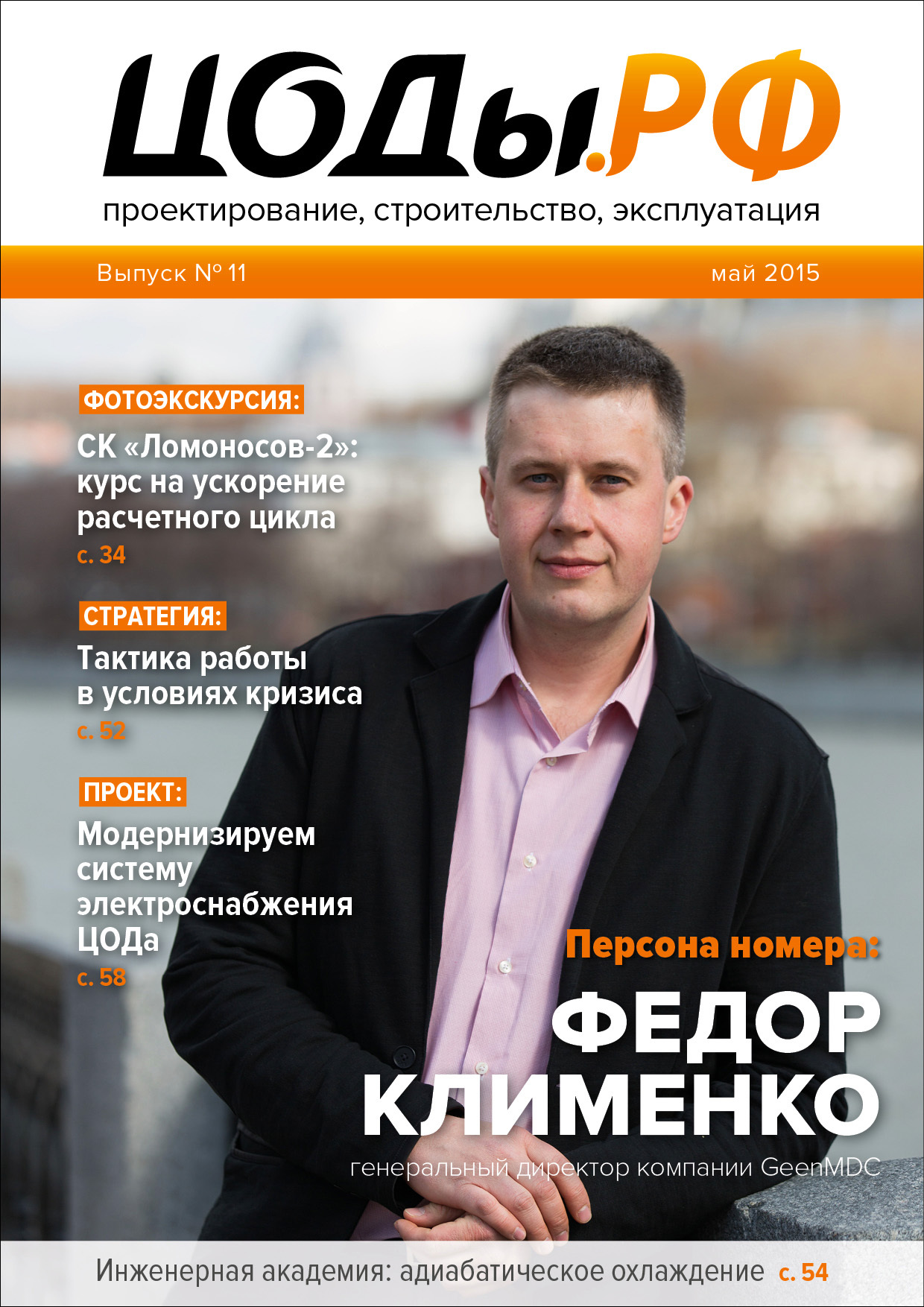The eleventh issue of the journal TsODy.RF

Islands in the ocean
It is significant: the new term “import substitution” has rapidly entered the everyday life of specialists involved in the design and construction of data centers. They began to use it in the context of sanctions and all kinds of restrictions imposed by our business by international communities disloyal to Russia. The data center market was not left behind by this topic.
In fact, we must admit that there have still not been any restrictions on the supply of engineering equipment to data centers by foreign manufacturers (at least in data centers of general civilian use). Rather, on the contrary, a barrier arose on our part - in government tenders, requirements for the priority of Russian products began to be written more and more often.
And then everyone asked the question: what is it - domestic products for the data center? If the bolts and nuts used in the screwdriver assembly are Chinese, can the product itself be called Russian? And what about OEM supplies? With a large assembly?
Experienced in solving such problems, industry magicians quickly orientated themselves and, with the help of simple tricks, at least on paper, turned some purely imported products into truly domestic ones. However, market mechanisms have put everything in its place. Due to the dizzying appreciation of the dollar and the euro at the end of last year, prices for imported equipment for data centers almost doubled. And it is price that has become an accurate indicator of the percentage of Russian components used in the product.
The soaring prices of imported products and components, like a bone in the throat, stopped the work on many of the projects that had begun. Actually, it’s not that the work was stalled - it went into the phase of revising its own arsenals and analyzing which analogues from the domestic landscape of engineering infrastructure can be taken to replace imported components.
Fortunately, it turned out that you can still take something, although not so much - domestic producers of these products resemble a group of small islands in the ocean. But on the islands they always know better what is being done in the metropolis ... Hence the lobbying in tenders.
Of course, someday projects that have been started will be brought to mind, and as the ruble stabilizes, new ones will start. But the educational anxiety that the industry is experiencing now should consolidate the useful skills of all participants. Although uninterruptible power supplies and precision air conditioners can not be compared with the Mistrals, you should not forget the lessons presented.
But at the same time it would be nice to think about how it happened that a country with a high scientific and technical potential turned out to be dependent on imports for several principal categories of engineering equipment? What needs to be done so that the automation level of the existing production process technology can compete with world analogues? How to organize production so that it is economically viable?
Everyone knows the answer: for this you need to have a global market and create healthy competition. Otherwise, domestic production capacities will not be enough even to satisfy the state order.
Raising mass high-tech production has been a matter of decades, and the only reasonable way out at the moment, experts see, is to remain in the current system of the international division of labor. But we have time to close the gaps, and we must use it wisely, not forgetting the legacy that previous generations have left us.
Yes, a generational gap has occurred, mentors, skilled workers and designers, whose experience is unique and transmitted in the only way - from person to person, have left. The stratum of skilled workers was very old and did not pass on its unique skills to young people. However, it is still not too late to fix it. Here, strategic planning would be very useful, too — what our country was so strong several decades ago. But while the monopoly on government contracts continues, professionals will prefer to stay on the islands - where people make decisions based on common sense.
